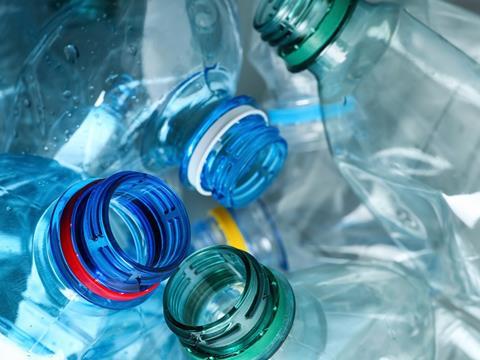
RecyClass and the European PET Bottle Platform (EPBP) have today announced a collaboration intended to support actors across the value chain in transitioning to PET bottle production that maximises recyclability.
EPBP says its role in the partnership will involve governance development and updating testing protocols. Meanwhile, RecyClass will be responsible for implementing and validating the analysis of standard packaging based on EPBP guidelines and protocols.
EPBP’s Design for Recycling Guidelines for PET call on producers to avoid the use of materials that may lower the quality of recycled PET, to reduce the amount of non-PET components to ease separation and boost efficiency during recycling processes, and, where components like closures and labels must be used, to consider a design that allows for safe, cost-effective, and quick separation. In addition, the goal of improving the recyclability of PET bottles must not compromise product safety, according to EPBP.
Through these Recycling Guidelines, materials and components used in PET bottles are then classified into one of three categories: full compatibility, limited compatibility, or low compatibility. The use of materials in the ‘full compatibility’ category is encouraged and enables PET bottles to be highly recyclable, while ‘limited compatibility’ means a material could negatively impact the European PET recycling process, although these effects can be reduced if certain conditions are met. EPBP recommends that materials in the ‘low compatibility’ category are restricted as they have demonstrated a detrimental impact on the European PET recycling process.
EPBP adds that it is an experienced organisation with regards to evaluating beverage PET bottle packaging solutions and technologies, as well as facilitating the understanding of how new PET bottle innovations could impact the recycling process and circular economy. Its main objective is maintaining food and consumer safety standards, reportedly with a strong focus on building a circular economy with stakeholders across Europe.
RecyClass has been responsible for the development of standard Recyclability Evaluation Protocols and other scientific testing methods for innovative polymer materials for a variety of applications. The group’s Sorting Evaluation Protocol for Plastic Packaging, which was released last year, defines a product as recyclable if it can be collected, recycled in a commercially available process, sorted into an aggregated stream, and used in the manufacture of new products. However, this definition is also dependent on the quality grade of the material produced after recycling.
According to RecyClass’ sorting protocol, a penalty may be applied if a certain amount of packaging does not end up in the stream corresponding to the resin used in the packaging body during the recycling process. The threshold is a sorting efficiency of 80%, with the penalty being applied to any packaging falling below this. RecyClass intends for this to give guidance on how sortable a packaging type is.
RecyClass offers different guidelines for a range of material types, including PE film, HDPE containers, PP containers, and PP films. For example, it recently granted limited compatibility approval to non-removable adhesive solutions for HDPE packaging developed by Avery Dennison and UPM Raflatac respectively.
RecyClass’ test results are incorporated into the Design for Recycling Guidelines and the free RecyClass Online Tool, including a plastic packaging certification delivered by third-party auditors. It recently received a positive evaluation by the European co-operation for Accreditation (EA), meaning it can now apply for accredited Recycled Plastics Traceability Certification.
Paolo Glerean, chairman of RecyClass, comments: “If we are to make plastics circular the industry players need to speak with one voice.
“We need also a clear and long-term objective which requires the collaboration, know-how and endorsement of all the partners.”
According to Philippe Diercxsens, EPBP board member representing Natural Mineral Waters Europe (NMWE): “Working together to safeguard food contact rPET with the highest quality in a bottle-to-bottle closed loop will be a key enabler for the industry towards its commitments.”
Antoon Spiessens, EPBP board member representing UNESDA Soft Drinks Europe, adds: “We believe that this partnership will be very beneficial to support a sustainable PET business and to foster solutions that help create a truly circular economy.”
By 2025, the European Union has set a mandatory target of 25% recycled content in PET bottles. The target will be increased to 30% by 2030.
Some companies have committed to exceeding such targets earlier than the deadline. For example, Britvic intends for all its plastic bottles in Great Britain to be made from 100% rPEt by the end of 2022, while PepsiCo has committed to eliminating all virgin plastic from its Pepsi brand bottles on the European market by 2022.
There has also been a shift by companies to develop bio-based plastic bottles. The Coca-Cola Company unveiled the first prototype of its 100% plant-based PET bottle last year, which it says is ready to be commercially scaled across the industry.













No comments yet